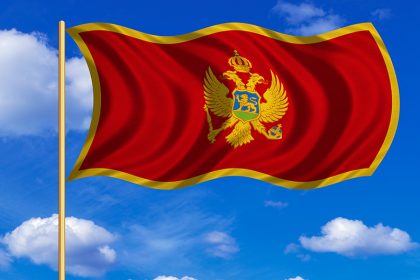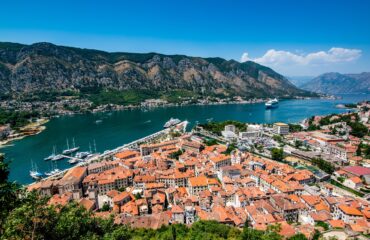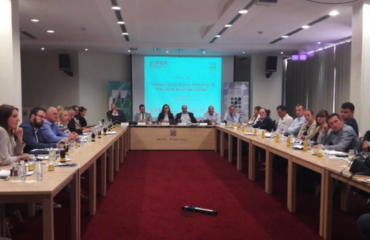
A concept of economic citizenship draws much attention of the public in Montenegro.
In attempt to attract foreign investors to invest in Montenegro, the government has passed a resolution on the implementation of an institute of economic citizenship, which is very widespread in the world. This has its own positive and negative consequences, but it is clear as first sight that the positive ones outweigh shortcoming of this concept by far.
First of all, Montenegro is chronically suffering from the foreign trade deficit, and our exports mainly relate to the so-called service industry, in our case tourism, which could for the first time reach the “dream line” of one billion euro (for example, Cyprus, where I live more than 25 years ,has been earning 4 billion euro per year from tourism, on a smaller surface than Montenegro, plus an unfavorable island position which means that you can visit it only by air transport, unfavorable political climate in the neighborhood such as a war in Syria, an Israeli / Palestinian problem, and the worst of all the occupations of northern Cyprus by Turkey since 1974!).
Without fake modesty, I would like to emphasize the economic significance of the Montenegrin Diaspora which brings directly into Montenegro at least as much money as earnings from tourism, either through the bank transfer, which our Central Bank records, either as a direct spending, which can not be recorded in that way, but is therefore visible in every corner of our country. But unlike tourism, where more than half of the cash inflow is paid for the import of goods necessary for the functioning of the tourism industry and salaries of seasonal workers from the region, this consumption of Diaspora entirety stays in our country.
Even if citizen of Montenegro from the Diaspora enters or transfers an average of 100 euro per month in Montenegro (and in reality this amount is incomparably higher) and given the fact that at least half million Montenegrins lives out of Montenegro, we see that in fact the Diaspora is the strongest economic branch of our country (among others, of this reports the World Bank, etc.). Instead of being publicly acknowledged, as in the case of Serbia, Bosnia and Herzegovina, Croatia and Macedonia, we are threatened by taking away our passports and the like, but we will discuss this in one of our next columns.
Briefly, the concept of economic citizenship is a legal institute by which country approves the acquisition of citizenship to a foreign investor, as well as members of his immediate family, who invests in projects approved by the state carting amount of money prescribed by the law. This system, although varies between countries according to their specific needs, are applied by many countries, both small ones such as St. Kits and Nevis and Dominica, as well as bigger ones, such as Canada. Many EU Member States, such as Cyprus, Malta, as well as Great Britain, Bulgaria and Slovakia, are successfully applying this system of attracting investors.
Among the most important positive aspects of this concept are the inflow of fresh investment funds, the revival of the economy, the creation of new jobs, where all the risks are borne by the investor, the reduction of external debt, the strengthening of currency reserves and the positive influence on the improvement of the demographic picture of the population (let’s not forget that Montenegro, Norway and Iceland are the lowest inhabited countries of Europe, and that for example Kosovo, have tree time more inhabitants in the territory much smaller than Montenegro).
Negative aspects are often excessive fear that international criminals, a fugitive dictators or drug dealers can represent himself as investor and become Montenegrin passport owner. But at the very beginning, the government has approach this potential problem very seriously by choosing three international consulting companies, two of which are among the world’s largest companies in this field (I know this personally as I am professionally engaged in this issue and I am the only one Montenegrin member of the Human Rights Institute within the IBA – International Bar Association, which includes economic migration). Also, having in mind that most investors will choose an attractive and developed south area and capital Podgorica, the government has correctly determined that a part of the 100,000-euro investment goes directly to the budget and will be used for the development of northern part of Montenegro, and if the investor decides to invest in the north amount of the investment is reduced from 450,000 to 250,000.
However, despite the positive recommendations to some of the authorized agencies, the government reserves the discretion to refuse the applicant without written explanation, i.e. proclaim him a persona non-grata. Since detailed conditions for the implementation of this project are not yet publicly announced, there is a justifiable concern that the projects of businessman who have connections with authorities and government officials will be favored and approved, while the others push aside, although we do not need to be critical at the beginning, but to react only after something like that really happens.
As a future member of the EU, European Union citizens are excluded from this concept in order to avoid potential objections that we are unnecessarily worried about, since in the EU Member States Cyprus, Germans, Bulgarians, etc. can receive passport using this model. The government had shown seriousness in approaching to the realization of this program by limiting the number of economic passports to 2000 families, but I sincerely hope that this program will be extremely successful and that we will improve it and extend it even after meeting this quota!
For the success of this project, its transparency and the selection of the right staff who will implement it in the country is very important, so we welcome it and wish success, which will benefit us all regardless of political views , religion or nationality!
Vladislav Vanja Popovic
Investment Lawyer
 English
English  Crnogorski
Crnogorski 


